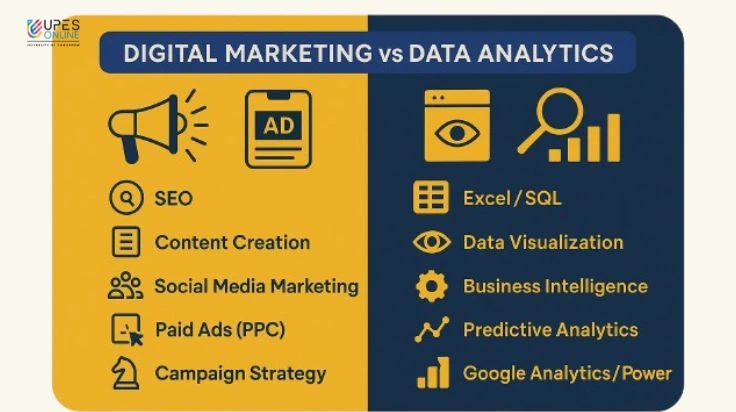Power generation: Generating Electricity from different Sources

Electricity is the backbone of modern society. From powering our homes, businesses, and industries to enabling communication and transportation, electricity plays a vital role in our daily lives. Power generation is the process of converting energy from various sources into electrical energy. As the global demand for electricity continues to rise, it is important to explore diverse ways to generate electricity to meet the needs of the ever-growing population. But have you ever stopped to think about how that electricity is actually generated?
Power generation is the process of producing electricity from various sources such as fossil fuels, nuclear energy, renewable sources, and more. In this blog, we will explore the different sources of power generation and their benefits, as well as why pursuing an management program in Power can be a valuable career path.
Generating electricity from non-renewable sources
The most common sources of electricity generation are non-renewable, such as coal, natural gas, and oil. These fuels are burned to produce heat, which is then used to turn water into steam. Electricity is produced by a turbine that is propelled by steam. This process is known as thermal power generation and is widely used in power plants all over the world. While this method of electricity generation is still prevalent, there are concerns about its impact on the environment. Burning fossil fuels contributes to climate change and air pollution by releasing carbon dioxide and other pollutants into the environment.
Generating electricity from renewable sources
Renewable energy sources are becoming increasingly popular for electricity generation due to their environmental benefits. Solar, wind, hydro, and geothermal energy are a few of these resources. Solar power involves the use of photovoltaic cells to convert sunlight into electricity. Wind power utilizes wind turbines to generate electricity, while hydroelectric power harnesses the energy of flowing water to drive turbines. Electricity is produced via geothermal energy, which harnesses heat from the Earth’s core.
Each of these methods of electricity generation has its unique advantages and disadvantages. While renewable energy sources are generally more sustainable and environmentally friendly, they can be intermittent, meaning that they are not always available. Non-renewable sources of energy, on the other hand, are more reliable but have significant environmental impacts.

The role of power management in electricity generation
Power management is a critical component of the electricity generation process. Power managers are responsible for ensuring that electricity is generated in a safe, efficient, and sustainable manner. They oversee the operation of power plants, manage energy resources, and work to improve the efficiency of the electricity generation process.
Power management is a complex field that requires a strong understanding of various energy sources, their properties, and their impact on the environment. It also involves the use of advanced technology and data analytics to optimize the generation of electricity. As the world shifts towards renewable energy sources, the demand for skilled power managers is expected to grow significantly.
Power Management Programmes by UPES Online
UPES Online offers an MBA and PGP in Power Management. These are comprehensive programmes that cover all aspects of power generation, from fossil fuels to renewable energy sources.
The MBA in Power Management programme offered by UPES Online is a 2-year programme designed for working professionals who want to advance their careers in the energy industry. Students will learn about the latest trends and technologies in the field of power generation, as well as the regulatory and legal frameworks governing the energy industry. The programme is delivered entirely online, allowing students to study at their own pace and on their own schedule. The programme is also highly flexible, allowing students to customize their course of study to suit their individual needs and interests.
PGP in Power Management offered by UPES Online is a 10-month post-graduate programme that aims to equip students with knowledge and skills related to the power sector, including energy efficiency, renewable energy sources, power distribution, and energy policy. The programme covers topics such as power plant engineering, smart grids, energy audit, and energy economics, among others. The curriculum is designed to cater to the needs of professionals and provide them with an in-depth understanding of the power industry.
In conclusion, power generation is a complex and rapidly evolving field, with a wide range of sources available for generating electricity. A Power Management course can provide students and working professionals with the knowledge and skills necessary to succeed in this exciting and challenging industry. With the programmes offered by UPES Online, students can gain a deep understanding of the energy industry, and develop the skills necessary to advance their careers in this growing field.
UPES Online Admission Enquiry
Recommended Courses




Latest Blogs

Digital Marketing vs Data Analytics: Which Career Should You Choose?
Battle of skills: Digital Marketing vs Data Analytics—compare 2025 salaries, skills & job roles. Expert tips to choose your future career path!
Read MoreJun 15, 2025 I 12 mins
Why Should I Choose UPES Online? 10 Reasons Why
Explore why UPES Online stands out in online education. Learn about flexible learning, UGC-approved degrees, expert faculty & credible online programs. Enroll now!
Read MoreAug 21, 2025 I 5 min
Can Distance Learning Fully Replace Traditional MBA Education? Challenges & Limitations
Find out if distance learning can truly replace a traditional MBA. Learn key challenges, limitations, expert opinion & insights.
Read MoreSep 2, 2025 I 4 mins
Online MBA Capstone Projects and the Importance They Hold
Know the importance of online MBA capstone projects. Learn how they build real-world skills, boost career opportunities, & add industry value.
Read MoreSep 7, 2025 I 5 mins
UPES Online MBA vs Other Top Universities: Why Students Prefer UPES
Compare UPES Online MBA with other top universities. Know why students prefer UPES online over others. Check fee, flexibility, faculty, ROI, & career scope.
Read MoreOct 1, 2025 I 7 mins







